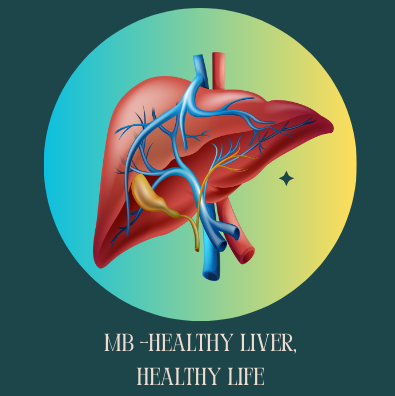Supplements Increasingly Linked to Liver Injuries
The Ascendance of Supplement Consumption
Supplements are ubiquitous—present on store shelves, in gym bags, and throughout influencer platforms. Individuals often perceive that they are enhancing their health through the consumption of multivitamins and unusual herbal mixtures. However, the paradox is that certain purported health enhancers may be detrimental rather than beneficial, particularly to hepatic function.
Reasons for Compromised Liver Health
The liver functions as the body’s chemical processing facility. It metabolizes all substances ingested, including dietary supplements. When subjected to excessive strain or toxic substances, it may become inflamed, scarred, or ultimately fail.
 Comprehending the Function of the Liver
Comprehending the Function of the Liver
The liver detoxifies blood, synthesizes bile, metabolizes pharmaceuticals, and stores nutrients. It is a multifunctional device. However, when you consume supplements—particularly various types—you compel your liver to metabolize unfamiliar or concentrated substances. This elevates the risk of drug-induced liver damage (DILI).
The Increase in Supplement Utilization
The worldwide supplement market is projected to surpass $230 billion by 2027. Individuals are pursuing natural remedies for energy enhancement, weight reduction, and anti-aging advantages—frequently without professional medical advice. Regrettably, “natural” does not invariably imply “safe.”
Common Categories of Supplements Associated with Hepatic Injury Herbal and Botanical Supplements
Numerous cases of liver injury are associated with natural herbs:
Green Tea Extract—Concentrated catechins may induce liver failure.
Kava—utilized for relaxing, although infamous for hepatotoxicity.
Chaparral—Marketed for detoxification, although it may induce liver inflammation.
Garcinia Cambogia—Renowned for weight reduction, associated with hepatotoxicity.
 Bodybuilding and Weight Loss Supplements
Bodybuilding and Weight Loss Supplements
Certain products include undisclosed steroids or metabolic enhancers.
Anabolic steroids may induce cholestasis and hepatic malignancies.
Fat burners contain caffeine, synephrine, or other stimulants detrimental to hepatic cells.
High-Dose Vitamins
Excessive use of vitamin A results in liver fibrosis.
Niacin (B3)—Doses exceeding 1,000 mg may drastically raise liver enzymes.
⚠️ Mechanisms of Liver Injury 💥 Direct Hepatotoxicity
Certain supplements contain substances that directly harm liver cells, resulting in necrosis or inflammation.
Immune-Mediated Hepatic Injury
In certain individuals, the body perceives supplement components as foreign entities, initiating autoimmune-like assaults on the liver.
Idiosyncratic Reactions
These are infrequent, unanticipated responses—no extent of research can ascertain who will be impacted.

Indicators of Hepatic Impairment
Monitor the following if you are consuming supplements:
Cholestasis of the integument (jaundice)
Dark urine and pale stool
Nausea and emesis
Severe exhaustion
Epigastric pain
Elevated ALT and AST levels in blood tests frequently indicate liver inflammation.
Practical Case Studies
A 38-year-old lady experienced severe hepatitis following the consumption of a fat-burning supplement that contained green tea extract.
A young male bodybuilder had total liver failure following two months of using a muscle-enhancing product containing unknown anabolic substances.
🔬 Scientific Findings
The Drug-Induced Liver Injury Network (DILIN) reports that approximately 20% of liver injury cases in their registry are associated with supplements. Herbal and nutritional products were twice as likely to necessitate liver transplants in comparison to medications.
Supplements with the Highest Risk Ratings
According to consumer surveys and FDA data, hazardous supplements encompass:
OxyELITE Pro (recalled product)
Hydroxycut (many instances of hepatic damage)
Herbalife (associated with hepatic inflammation in certain users)
Are “Natural” Supplements Invariably Safe?
Negative. “Natural” becomes a marketing designation rather than a guarantee of safety. A multitude of supplements:
Are tainted with toxic metals
Possess unlisted prescription medications
Not FDA-approved or batch-tested
 Diagnosis of Supplement-Induced Hepatic Injury
Diagnosis of Supplement-Induced Hepatic Injury
Physicians depend on:
Blood tests: To assess hepatic enzyme concentrations
Liver biopsy: To evaluate inflammation or fibrosis
Patient history: Comprehensive supplement disclosure
The more promptly the problematic product is discontinued, the greater the likelihood of recovery.
Preventive Strategies and Secure Supplement Utilization
Examine labels, particularly the “inactive components.”
Refrain from excessive dosages
Introduce one new supplement at a time to ascertain any reactions.
Select brands that are certified by USP or NSF or subjected to third-party testing.
Regulatory Challenges
In numerous nations, including the United States, supplements are categorized as food rather than pharmaceuticals. This signifies
No compulsory safety assessments
Post-market surveillance is inadequate.
Manufacturers are not required to obtain FDA approval for sales.
The responsibility lies with consumers.
Role of Pharmacists and Healthcare Professionals
Consistently inquire about patients’ use of supplements.
Notify regulatory authorities such as the FDA’s MedWatch of adverse events.
Assist patients in differentiating between essential and hazardous supplements.
Alternatives to Hazardous Supplements
Whole foods: Nutrients derived from natural sources are safer and exhibit greater bioavailability.
Modifications in lifestyle: Nutrition, physical activity, and rest surpass the efficacy of most supplements.
Utilize only those supported by robust research, such as vitamin D and omega-3 fatty acids.
🔚 Conclusion
Although supplements may provide health advantages, they can also insidiously harm the liver, particularly when misapplied or inadequately managed. Do not be influenced by “natural” designations or ostentatious advertising. Your liver warrants knowledgeable and prudent care. If you experience any adverse effects when consuming a supplement, do not hesitate to act. Heed your body’s signals and seek competent advice.
❓FAQs 1. Which supplements provide the most risk to hepatic health?
Herbal extracts such as green tea, kava, and anabolic steroid-containing bodybuilding supplements are among the primary culprits.
2. Can the cessation of a supplement repair hepatic damage?
In numerous instances, affirmative—if detected promptly. Always seek the counsel of a healthcare professional.
3. Are prescription drugs more secure than supplements?
In general, affirmative. Prescription medications undergo clinical testing; however, the majority of supplements do not.
4. What is the procedure for reporting liver harm associated with a supplement?
Utilize the FDA’s MedWatch program or the regulatory authorities of your nation.
5. Is the concept of liver detoxification via supplements a fallacy?
Predominantly. The liver inherently detoxifies itself. The majority of detox supplements lack empirical validation and may pose health risks.
 https://analytics.google.com/analytics/web/#/analysis/p405220706
Skip to content
https://analytics.google.com/analytics/web/#/analysis/p405220706
Skip to content 
